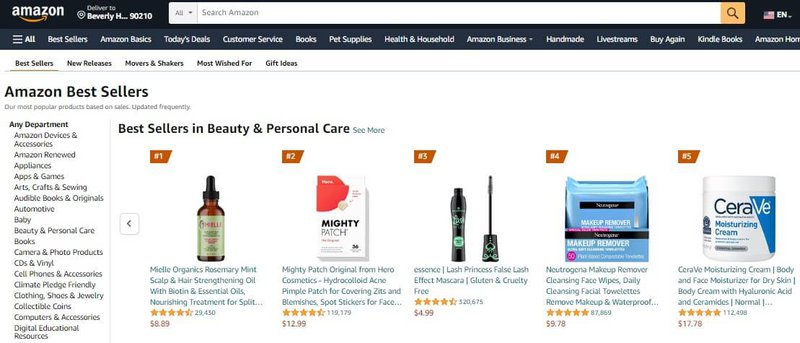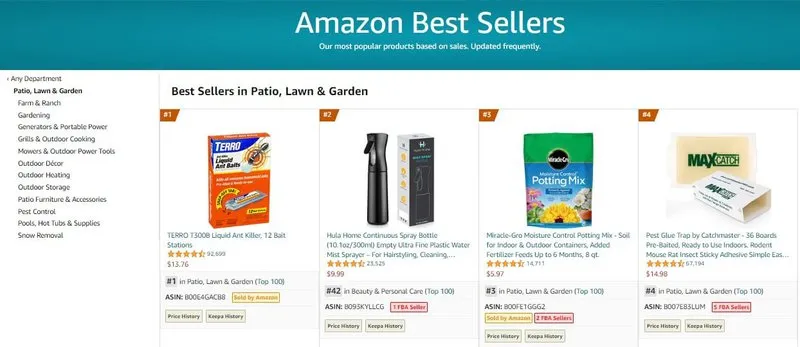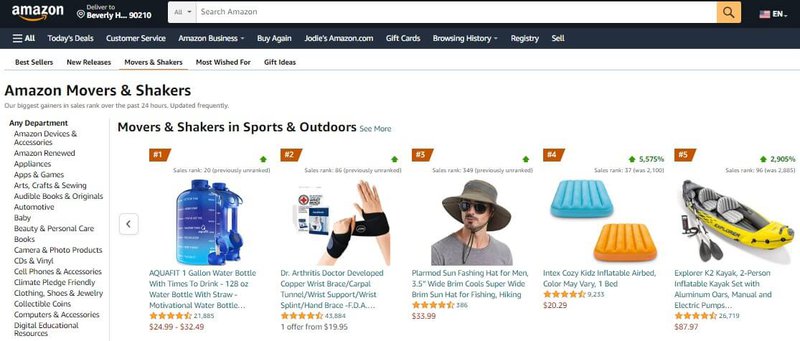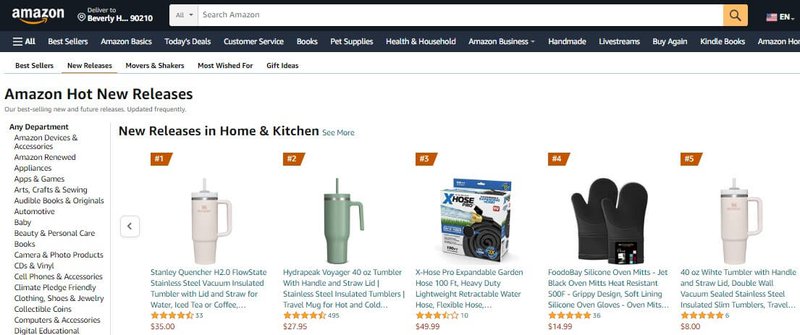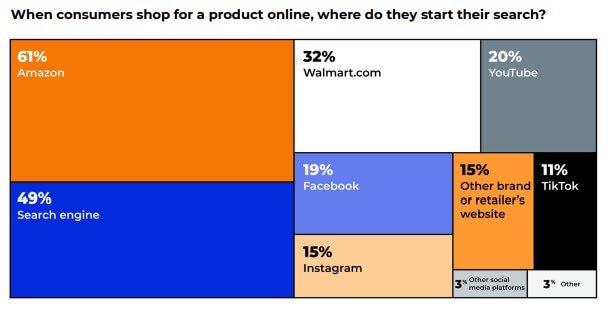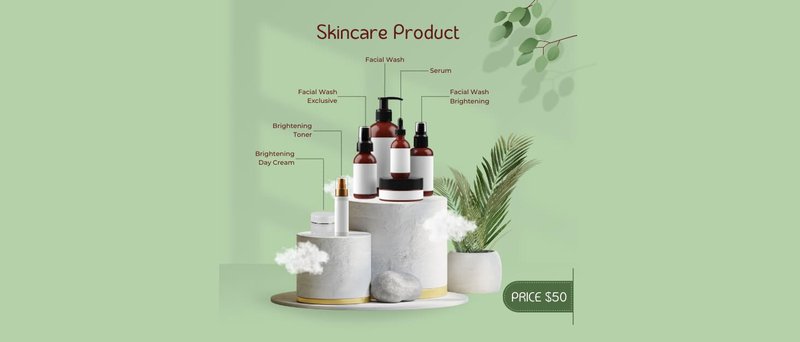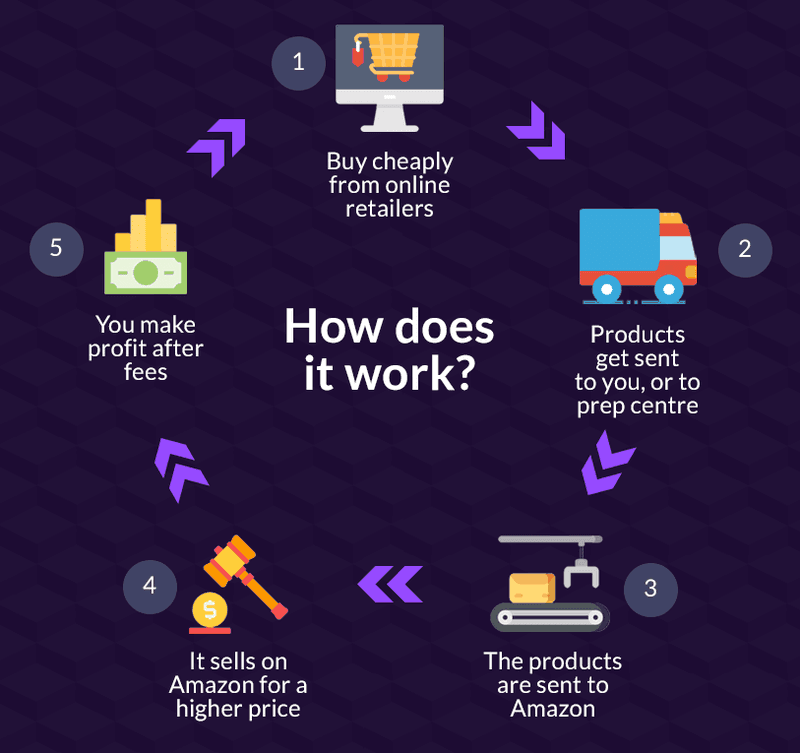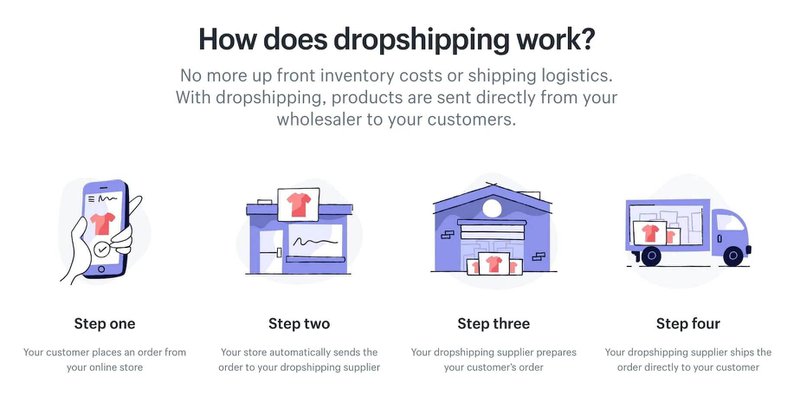The Best Amazon FBA Products to Sell in Q4 2026 + Best Practices
Wondering which Amazon FBA products yield the best profits? Here's a guide to help you decide.
Updated November 7, 2024
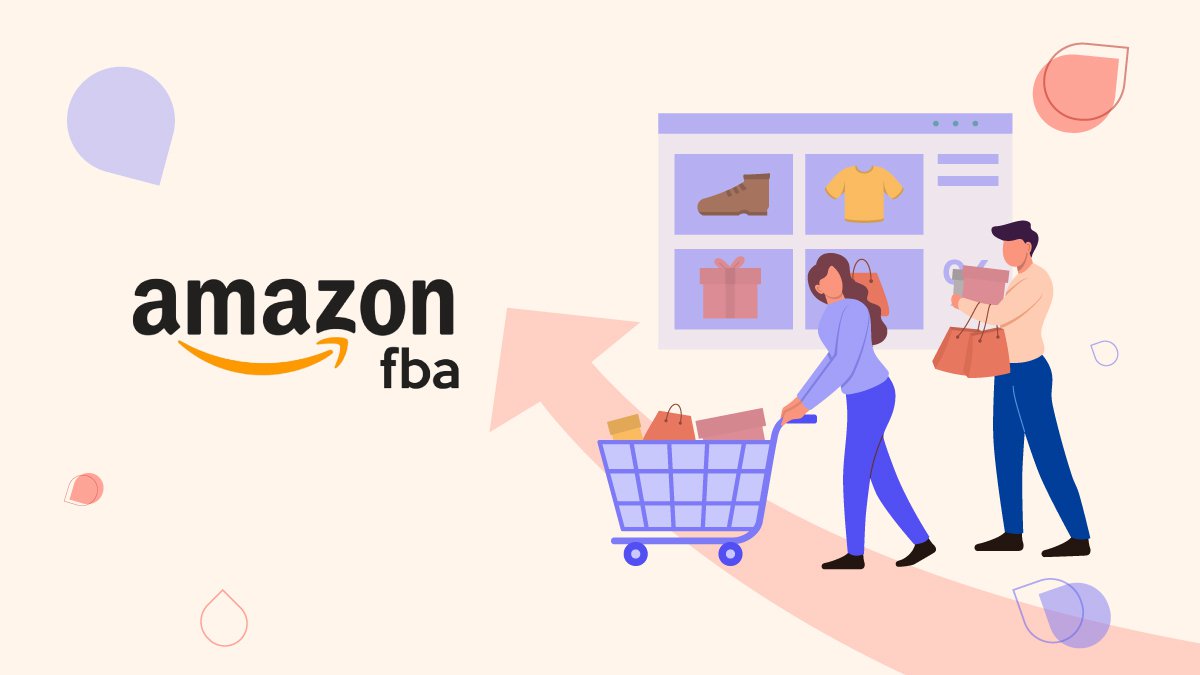
The world of eCommerce is booming, with Amazon retail sales forecasts at $746.22 billion in 2023.
The good news? Anyone can tap into this vast market. With Amazon FBA (Fulfillment by Amazon) and various tools and programs Amazon has developed for sellers, starting your own eCommerce business is easier than ever.
Coming up with Amazon FBA products to sell is one of the single most important steps to success - but it can also be one of the most daunting and challenging ones too (especially with millions of products available on the platform.)
Meet the expert
Mina is a multiple seven-figure seller in the supplement industry, investor, Amazon PPC expert, and founder of the Trivium Group, an Amazon Advertising agency. He has consulted over 400 brands and 3 aggregators worth $1.2 billion combined.
In this blog post, we'll walk you through the top-selling products on Amazon, teach you how to research and identify the profitable items to sell, and show you the best practices for making your products a hit on the world's largest online marketplace.
Plus, we'll provide insider tips on successfully launching your bestselling products on Amazon, giving you the best possible start to your eCommerce business. Get ready to join the ranks of successful Amazon sellers!
Top Products Sold on Amazon in 2022
Looking back at the hot sellers on Amazon last year can be an excellent source of inspiration for this year's product line. By analyzing the sales history and identifying popular items, you can gain valuable insights into what customers are looking for and what's likely to sell well on the platform.
Amazon Most Popular Products
According to JungleScout’s State of the Seller Survey, the top 10 best-selling Amazon product categories are:
- Home & Kitchen
- Beauty & Personal Care Products
- Toys & Games
- Clothing, Shoes & Jewelry
- Health, Household & Baby Care
- Sports & Outdoors
- Arts, Crafts & Sewing
- Books
- Kitchen & Dining
- Baby
Amazon's Most Profitable Products
While some product categories may be more popular among sellers than others, there are non-profitable sub-categories within every category.
For instance, while Home & Kitchen is the number one category among sellers, certain sub-categories may not be profitable due to increased competition, direct competition from Amazon, and higher pay-per-click (PPC) costs.
On the other hand, less popular categories can be more profitable than popular product ones, as survey data shows. To maximize profits many Amazon business owners sell in multiple categories to maximize profits.
How to Research Products to Sell on Amazon
Here are some things you can do if you want to research your own products to sell on Amazon:
Use the Best Sellers List
The best way to start researching products to sell on Amazon is to use the Best Sellers list. This list displays the top 100 bestselling products, and it can be filtered by category, price, and other criteria. The data here updates hourly, so you’re always 100% sure the information is accurate.
To determine the level of demand for a niche product, you can check its Best Seller Rank (BSR) in the Product Information section. You can also research manually, by typing relevant product keywords in the Amazon search bar, looking at the top-selling items, and analyzing the BSR of the listed products.
Explore product categories and subcategories
To identify new product opportunities, explore different product categories and sub-categories. By delving into the best-selling categories, you can uncover emerging trends and patterns within a niche that interests you.
For example, you can start with a broad category, such as Patio, Lawn and Garden, then refine the search to more specific subcategories, such as storage and organization items. From there, you can narrow the search to focus on a particular area, such as gardening and outdoor storage.
Use Amazon's programs wisely
Amazon offers several programs to support various business models and unlock new selling opportunities:
- Brand Registry - protects brands and provides brand-building tools
- Amazon Handmade - designed for artists and artisans to sell their unique, handcrafted goods
- Amazon Custom - allows sellers to offer customizable products
- Merch by Amazon - provides opportunities for artists to earn royalties from their artwork
- Amazon Renewed - a program focused on pre-owned products that have been refurbished
Decide on the products you want to sell
Not sure which products to sell? Here are some tips to help you out.
Pay attention to Amazon movers and shakers
The Movers and Shakers list on Amazon updates hourly. By tracking the products with the biggest sales gains, sellers can get a sense of what's popular with shoppers right now.
One approach is to look for products that have seen consistent growth over time, rather than just short-term spikes. These products may have more staying power and can offer a more reliable revenue stream. Another strategy is to look for products complementary to what you're already selling.
Look for the new releases
Amazon's New Releases list shows the current listings across all categories and it is updated hourly. This list is an excellent way to find unique products that may not have as much competition as established products.
Build a strategy around trending products
If you're looking to sell a specific product category or type, it's crucial to have a strategy in place to set yourself apart from the competition.
One tactic is to find high-demand products with low competition. This can be determined by analyzing the number of reviews. Additionally, product reviews can offer valuable insights for product improvements that exceed customer expectations. And don't be afraid to get creative - consider ways to make a trending product stand out with a design upgrade.
Best practices for selling on Amazon
Being successful on Amazon is about more than just selling the right products. Deeply understanding your audience and your business model will help you stay ahead of the competition, attract more buyers, and sell more inventory. To achieve all this, follow these best practices:
Understand why customers buy on Amazon
Understanding why customers choose Amazon helps you know what they're looking for -- so you can actually offer it to them. Here's what you need to know about this:
Personalized service
Customers choose to shop on Amazon versus eCommerce stores for many reasons, including the benefit of personalized and excellent customer service. Amazon creates a personalized shopping experience by recommending products based on customers' search and purchase histories.
With Amazon's vast selection of products, customers can easily find what they want. Additionally, Amazon's customer service is renowned for its responsiveness and helpfulness.
Customers can easily return products and receive refunds or replacements and can even contact customer service 24/7 via phone, email, or live chat.
Getting cheaper products
Amazon's competitive prices and value for money are one of the main reasons why millions of customers choose to shop on Amazon. Customers can quickly compare prices and find the best deal for the product they are looking for.
Amazon also allows sellers to offer daily deals and promotions that provide customers with even more opportunities to save money. With the added convenience of fast shipping and outstanding customer service, Amazon's cost-effective approach has made it a popular choice for budget-conscious shoppers looking to get the most value for their money.
Access to product comparisons and reviews
Shoppers turn to Amazon as they can access product comparisons and reviews. When it comes to online shopping, according to JungleScout's Consumer Trends Report 2022, over 60% of US consumers begin their product online search on Amazon.
With millions of products on the site, it can be overwhelming for shoppers to choose the best option.
Amazon's product comparison feature allows shoppers to compare multiple items side by side, making it easier to weigh the pros and cons of each product before making a decision.
By reading reviews from other customers who have purchased the same product, shoppers can learn about the quality, performance, and durability of the item they are interested in.
Fast, painless shipping
Amazon's shipping is one of the company's key selling points, a significant reason many people prefer to shop on Amazon.
The company's Prime membership program, in particular, has been a game-changer for the e-commerce industry. Millions of customers now utilize Amazon Prime's free two-day shipping, which makes it incredibly easy to get the items they need quickly and without any hassle.
Amazon's easy returns policy makes it simple for customers to return items that don't meet their needs, further enhancing the shopping experience.
Overall, Amazon's commitment to fast, painless shipping and hassle-free returns has helped to cement the company's position as the leading e-commerce retailer in the world.
Take care of your procurement
Selling products on Amazon is only part of the equation. How you procure your products can also influence your success as an Amazon entrepreneur.
Private labeling
Private label products have become profitable for selling with Amazon's FBA. Selling private label products involves branding generic products as your own, either through getting your branding done at the manufacturing stage or sourcing unbranded products and labeling them with your brand.
Private labeling offers sellers more control over product quality, packaging, labeling, and other aspects of the product, allowing them to build a unique brand and stand out from competitors.
Retail arbitrage
Retail arbitrage is the practice of buying discounted products through retailers to sell on Amazon. The process involves finding seasonal products and evergreen products at a lower price and reselling them on Amazon at a higher price to make a profit. It's legal as long as the product is sold in an undamaged condition.
Compared to other business models on Amazon, retail arbitrage sellers have lower start-up costs and can launch faster, making it a great, low-risk option for those who want to start selling on Amazon.
Online arbitrage
Online arbitrage is the process of buying popular items online and reselling them for a profit. The process involves finding discounted products that have consistent sales on Amazon, to maximize profits and can be an excellent option for those looking to start selling on Amazon without investing a lot of capital upfront.
However, when purchasing products online, it's essential to factor in shipping costs and seller fees to ensure a profitable margin. To find products for resale, large retailer websites like Walmart, Target, Best Buy, and Kohls's offer great deals on items on clearance or sale.
Wholesale
Selling wholesale products on Amazon involves purchasing bulk products from a manufacturer, supplier, or distributor and reselling those products to consumers on Amazon.
Wholesale Amazon vendors negotiate rates directly with brands and distributors and add their offer to an existing product listing. Compared to other business models, wholesale is relatively easy to get started and is scalable, with a focus on growth and building a team to manage operations.
However, selling bulk products also comes with challenges, including saturated markets, upfront costs, and the time-consuming research required to explore dozens of product opportunities.
Dropshipping
Dropshipping is a popular fulfillment option that allows Amazon sellers to outsource the handling and shipping of products to a third party. With dropshipping, Amazon sellers can offer a wide range of products without needing to keep inventory in stock or worry about inventory management.
Instead, the seller purchases products from a manufacturer, distributor, or supplier only when they receive an order from a customer. This approach allows Amazon sellers to minimize overhead costs, simplify operations, and focus on marketing and customer service.
Handmade
If you're interested in selling handmade items on Amazon, the Amazon Handmade Products category is a great place to start. Amazon allows artisans to list their products for free and charges a 15% seller fee for each sale.
This category is exclusively for handmade items. For example, if you're interested in selling beauty products such as soap, you can make your soap using your preferred ingredients and packaging it uniquely.
Make sure your fulfillment process is smooth
Ensuring that your eCommerce fulfillment process is smooth is essential for running a successful FBA business. This means ensuring your orders are processed and shipped quickly and accurately, with minimal errors or delays. It can be difficult for even experienced sellers to navigate the platform, so many businesses turn to Amazon FBA experts for help.
One crucial factor to consider is shipping options and associated fulfillment fees. Sellers have several options;
- Merchant Fulfilled (MFN) - sellers to maintain inventory and handle shipping themselves
- Fulfillment by Amazon (FBA) - Amazon sellers can ship products to Amazon fulfillment centers to eliminate the hassle of shipping orders
- Seller-Fulfilled Prime - individual sellers to maintain inventory, ship products, and set the cost of shipping themselves
Listing
Listing your products is vital to a successful business on Amazon. Pay attention to the small details when creating your product listings, as they can make a big difference in whether or not your listings perform well in the competitive marketplace.
Creating a successful Amazon listing involves several features, including keyword-rich titles and descriptions, high-quality images, and accurate product information. Titles and descriptions should include relevant keywords to help customers find your product, while images should be clear and showcase the product from different angles.
To start selling, you must create a product listing in Seller Central. Once you have created an Amazon seller account or signed in to an existing one, you can begin listing products by either matching an existing listing or creating a new one.
If you want to sell more and generate more revenue from your Amazon business, you should hire an Amazon FBA expert. They can help you manage your Amazon FBA products, fulfill multiple business functions, and even provide you with marketing, customer care, and sales support.
Products you can't sell
Amazon has a set of guidelines that dictate what types of products can be sold on its platform. In general, items that are illegal, dangerous, or violate intellectual property rights are considered restricted products. Here is a list of restricted products that you cannot sell on Amazon:
- Weapons
- Drugs and drug paraphernalia
- Tobacco and tobacco-related products
- Offensive and prohibited content
- Stolen goods
- Counterfeit products
- Hazardous materials
- Recalled products
- Live animals or animal-related products
- Products that violate Amazon policies
Research product prices
To ensure that you're pricing your products competitively, it's important to research what other sellers are charging for similar items.
One way to do this is to use Amazon's search bar to look up the products you're interested in selling and determine the average selling price. A wide variety of product research tools can help you research market trends and track competitor pricing. Some of the most popular ones include:
Watch your metrics
To ensure you have chosen the right products, it is important to monitor product performance continuously and identify areas for improvement.
Amazon's Seller Central offers several features to track your monthly sales revenue, brand health, and customer feedback, including a brand dashboard to monitor account health and metrics, performance metric tracking, sales reporting, and analytics on the Brand Dashboard.
Set notifications to keep up-to-date with changes and monitor customer feedback. Maintaining positive feedback and ratings is crucial for success on Amazon.
Experiment with different strategies
Amazon offers sellers many tools to create a unique and personalized eCommerce storefront that reflects their brand and showcases their products.
One way to differentiate your store is to use customized rich media content such as text, images, and videos. By creating a multi-page, immersive experience for customers, sellers can engage shoppers and improve their chances of making a sale. In addition, an eCommerce store on Amazon can help protect your brand name and increase customer loyalty.
Adjust your marketing to your results
One key aspect of Amazon marketing is creating a strong brand identity that resonates with your target customers. This includes developing a clear brand message, consistent visual branding, and a unique value proposition. Using social media platforms, such as Facebook, Instagram, and Twitter, can be an effective way to reach your target audience and build brand awareness.
Search engine optimization (SEO) is another important element in your Amazon marketing. By optimizing your product listings, you can increase your visibility in search results and attract more potential customers to your listing.
It's essential to track the performance of your marketing efforts, so you can see what's working and what's not. Use analytics tools to monitor traffic, conversion rates, and other metrics. This data can help you make informed decisions about marketing budget allocation and marketing campaign optimization.
An experienced Amazon PPC expert that knows their way around Amazon Seller Central, can save you thousands of dollars and scale your brand much faster.
And if you want to take your Amazon sales to the next level, consider partnering with an Amazon expert or Amazon agency. With their expertise, you'll be able to achieve even greater success and reach new heights in your eCommerce journey.
FAQs
Which product is best to sell on Amazon
To find the best products to sell on Amazon FBA, consider starting with your hobbies or interests. What are you passionate about? Consider what type of products people need to solve a problem and that are not easy to find in brick-and-mortar stores. It's also useful to check the best-selling categories in departments you're interested in on Amazon to find inspiration. It's important to strike a balance between finding a niche market that addresses a specific pain point and ensuring enough market demand to generate a profitable business. Avoid competitive categories with best-selling items unless you have the market share to compete. By following these tips, you can find the best products to sell on Amazon FBA and increase your chances of success.
How do I choose a product to sell on FBA
When choosing a product to sell on FBA, focus on low-cost items within the price range of $20-$50, as moderately-priced products are more likely to be impulsively purchased. Opt for smaller and lighter items with lower shipping costs that won't cut into your profit margins. Choose products you are familiar with and passionate about, as this will make it easier to write accurate product descriptions, highlight key features, and convince potential customers to try your products.
What can I sell with FBA
When selecting products to sell with FBA, there are some specific criteria for success. Firstly, it's best to avoid selling well-known or designer-branded products, as Amazon is not the ideal platform for those items. Instead, buyers on Amazon are looking for excellent products within their price range, making it important to focus on offering competitive prices for your branded products. To stand out from other sellers offering similar products, consider taking the 'similar but better' approach by listing your product under your brand name and offering something extra, such as faster shipping or better customer service. Ultimately, the most important criteria to consider when deciding what to sell on Amazon FBA include identifying a high-demand niche, offering competitive pricing, ensuring high-quality products, and providing excellent customer service.
Is Amazon FBA easy to sell
Selling on Amazon's FBA service is not easy, but certain products are easier to sell than others. For instance, books have a low barrier to entry and can be easily self-published on Amazon, while clothing and jewelry offer opportunities for design and marketing expertise. Toys, games, and Baby items are always in demand. Computers and accessories like laptop covers and custom keyboards can also be lucrative. Additionally, e-books offering actionable insights or expert knowledge in a particular field can be a profitable niche.
How many items do you need for FBA
The amount of items you need for FBA depends on several factors, including the demand for your products, the size of your budget, and your overall business goals. Generally speaking, it's best to start with a manageable amount of inventory that you can comfortably afford and has proven demand. This allows you to test the waters and avoid tying up too much capital in unsold inventory. However, it's important to ensure that your inventory levels meet demand and avoid stockouts, which can negatively impact your sales and customer ratings. As your business grows and demand increases, you can gradually increase your inventory and adjust your strategies accordingly.
Do I need my own brand for Amazon FBA
Strictly speaking, you don't need your own brand for Amazon FBA; however, having your own brand can help set your products apart and build customer loyalty. Many sellers have achieved success by sourcing and selling generic or unbranded products. However, building your brand can offer several benefits, such as the ability to differentiate your products from competitors, establish a loyal customer base, and potentially achieve higher sales margins. Ultimately, whether or not to develop your brand is a strategic decision that depends on factors such as your goals, target audience, and available resources.
How many items do you need to start FBA?
There is no specific number of items that you need to start FBA. Some sellers begin with just a few products, while others start with a larger inventory. It ultimately depends on your budget, goals, and the demand for your chosen products. It's important to note that fees are associated with using FBA, such as extra storage and fulfillment fees, which can impact your profitability. As such, it's generally a good idea to start with a manageable number of products you can comfortably afford and have proven demand. As your business grows, you can gradually increase your inventory and expand your product portfolio.

